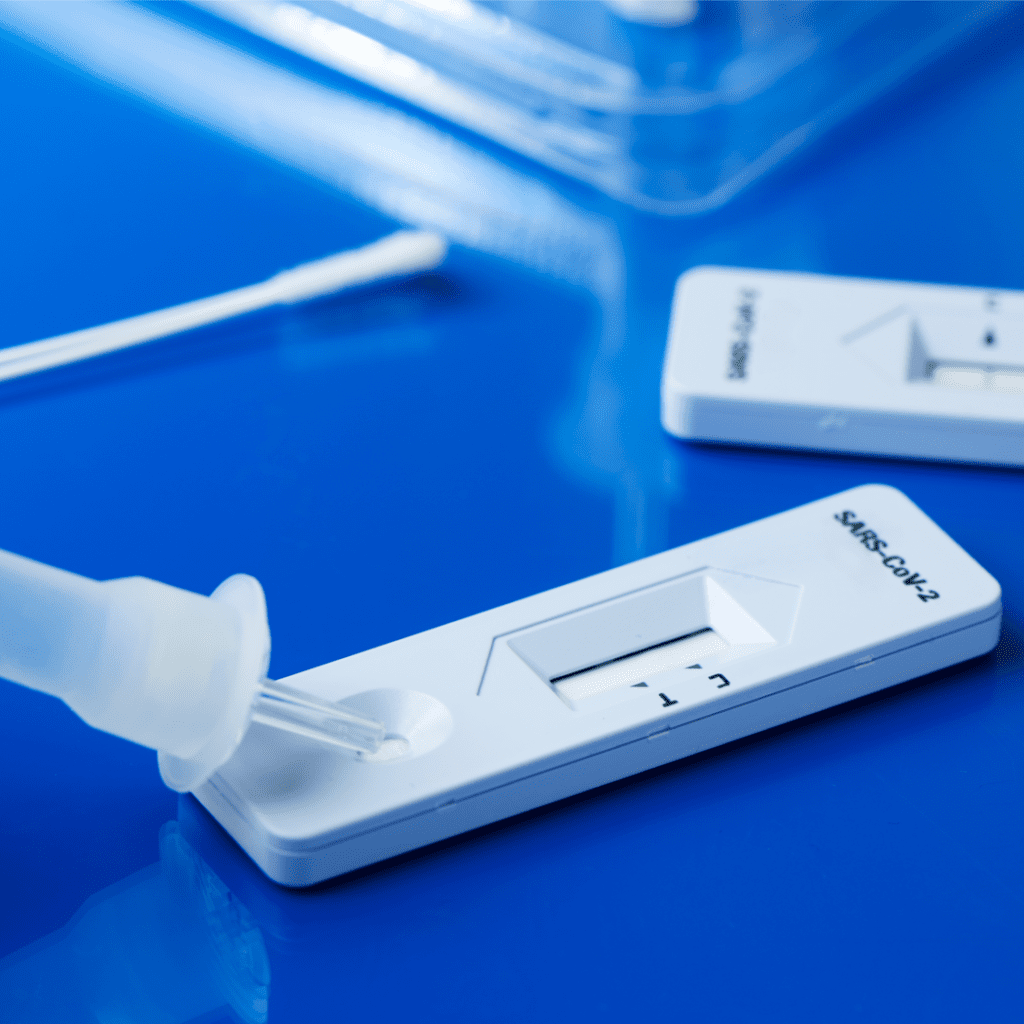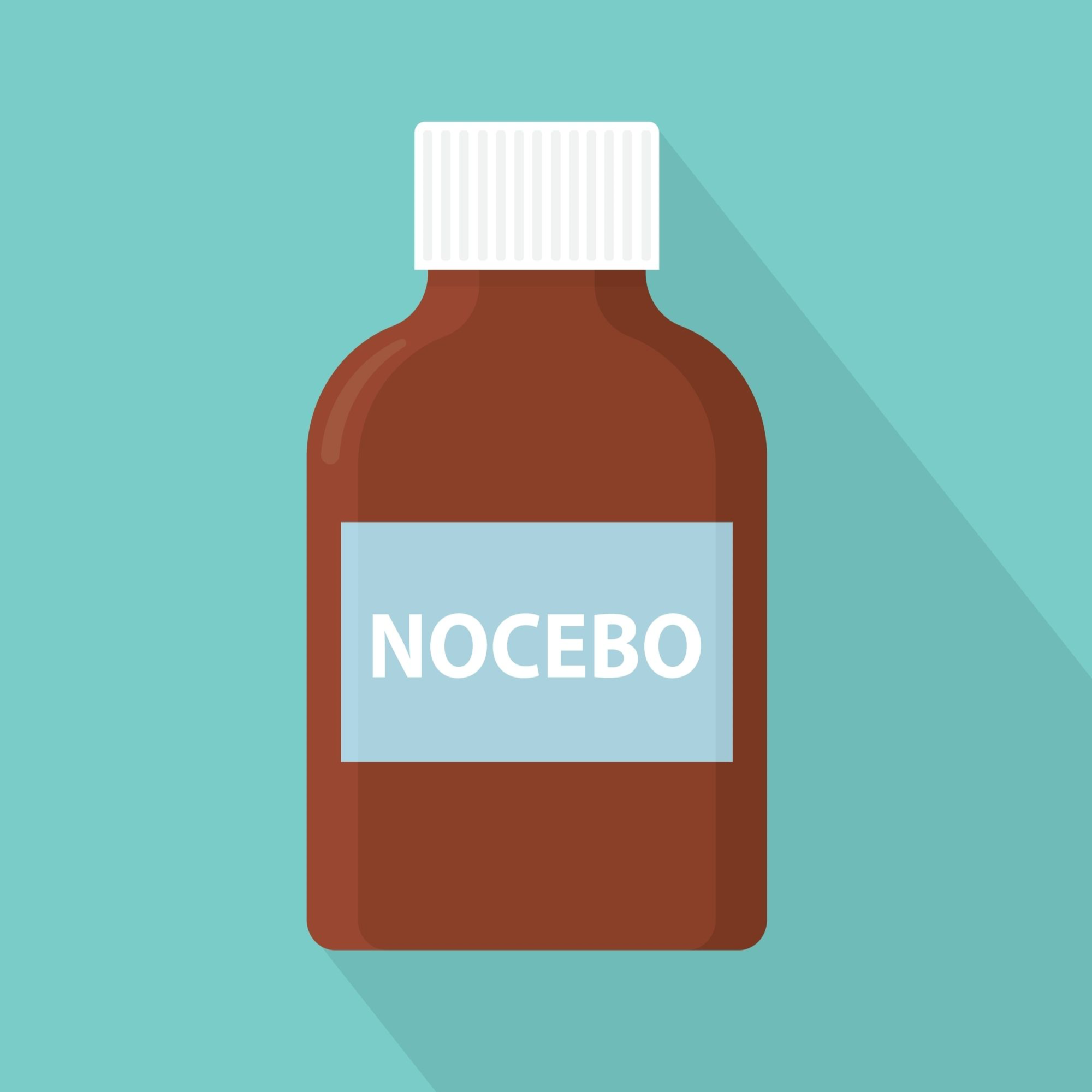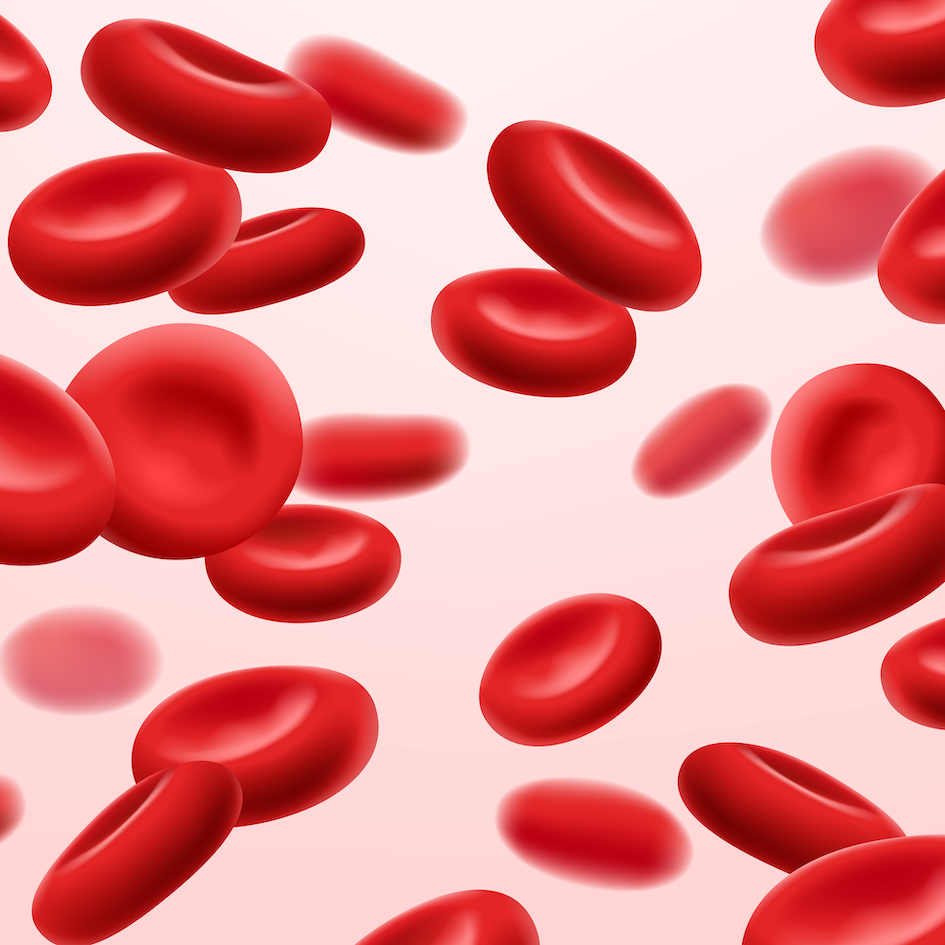 Rapid antigen tests, also known as lateral flow assays, are a powerful tool to help identify active COVID infections. This article provides a practical, science-based summary of what you need to know to leverage this tool: when to test, how to interpret your results, and how to get your hands on these elusive tests.
Rapid antigen tests, also known as lateral flow assays, are a powerful tool to help identify active COVID infections. This article provides a practical, science-based summary of what you need to know to leverage this tool: when to test, how to interpret your results, and how to get your hands on these elusive tests.
There is far more detail to this topic than this article can do justice to, so I’ve provided plenty of resources to learn more.
What do rapid antigen tests detect?
Rapid antigen tests detect a tiny protein inside the SARS-CoV-2 virus, usually the N or nucleocapsid protein. In order to get a positive result, there has to be A LOT of this viral protein on your swab, to the tune of millions of copies. So, if the Test line lights up, you are actively infected, and likely contagious.
By contrast, PCR looks for bits of viral RNA, and can detect much smaller amounts, because it involves a signal amplification step. When you have enough viral protein to light up a rapid test, you are probably contagious.
When should I test?
There is no one perfect time to test, because it’s impossible to predict the journey of the virus in your body. The amount of time it takes to go from infected, to contagious, to symptomatic, varies from variant to variant and person to person. Here are some rough guidelines:
If you develop symptoms: You have a good chance of getting a positive result the day you develop symptoms, but it’s also possible to get a false negative (especially with Omicron). Testing 1-3 days after symptoms will reduce the chances of a false negative.
If you were exposed: You have a good chance of getting a positive result 3-4 days after exposure, but it’s also possible to get a false negative if the virus is growing more slowly in you. Testing 5-6 days after exposure will reduce the chances of a false negative.
Before a gathering: Test as close as possible to the gathering for your best chances of catching an early infection. Even then, some early infections can slip through the cracks if they were just below the detection threshold. Rapid testing before a gathering is a powerful layer of protection but is not foolproof.
How long is too long? In general, the longer you wait (to a point) the lower the chances of a false negatives. Yet, you don’t want to wait too long. Rapid test performance starts to drop about 5 days after symptoms, when some people will have cleared the infection (especially if vaccinated).
Interpreting your results
- A positive test is probably accurate. Assume you have COVID-19. True positives are much more common than false positives during a surge.
- Even a faint line counts as a positive. If you’re at the beginning of an infection, it will likely be brighter tomorrow. If you’re at the end, it will likely fade to negative in 1-2 days.
- A single negative rapid test is not conclusive, especially in the early days. It could be that you tested to early. If you have symptoms, wait and test again in 1-2 days.
Online Vendors
Note: Inventory is very low across North America. Consider pre-ordering ASAP so you’ll have tests in a few weeks.
- Rapidtestandtrace.ca – Sells a variety of brands; Online only.
- Aurorabiomed.com – Sells a variety of brands. Fairly fast (but not cheap) shipping options.
- MyZoneHealth.com – Sells only one brand (Boson). Lowest price per test at $200 for 20 tests. Note that the shipping time may not be as fast as advertised – my order arrived Jan 21 after ordering Dec 30.
USA
- COVIDtest.gov is offering 4 free rapid antigen tests per US household
- COVIDtest.gov also provides information about community testing sites and reimbursement from health insurance
- Consumers can buy rapid tests online from Amazon.com and all major pharmacies
- This New York Times article provides more information for US shoppers
Curbside Pickup (varies locally)
- In Vancouver, the only option I am aware of is Aurorabiomed.com (East Van). As of 1/22 they have one option in stock for curbside pick up (2 pack of CovClear)
Rapid Test Brands
- For Omicron, no specific brands is proven to be better than others (not enough data yet). Prior to Omicron, most tests were very good at picking up highly contagious cases, but performance was variable for moderate viral loads (see this review of 122 brands!).
- The following brands were vetted by BC Public Health: Abbott Panbio, Artron, BD Veritor and BTNX.
- This New York Times article highlights four brands of rapid tests that are reliable and widely used in the US: Abbott BinaxNOW, Quidel QuickVue,Intrivo On/Go, and Acon FlowFlex.
Here are some practical and scientific reflections on several brands commonly available in Canada:
- BTNX: This is the only brand I am aware of with a min order of 5 per box (most are 25). Also, price is on the lower side at $12 per test. We used this brand to detect and monitor my son’s case and they worked very well for us. Started faint, got strong, then faded to faint again for last few days.
- Abbott PanBio: Their independent validation data looked great (from pre-Omicron) and these are commonly used at gov testing sites. The swab is more comfortable (less pointy) in my opinion. The downside is that they come in min order 25, with a single vial of buffer.
- Roche: I have heard rumours that Roche detects Omicron a little better than others, but haven’t seen data. Their min order is also 25, but at least the buffer is packaged individually. Price point similar to Abbott. Personally, I’m a big Roche fan because I used to work at Genentech and I know they have some really great people and science!
- Boson: These are the least expensive at $200 for a box of 20. I haven’t used them yet (they just arrived) but the one technical study I have seen showed solid detection of Omicron, similar to other brands.
I know that this is a trying time to navigate and I sincerely hope this helped. For more information, see the links below or shoot me a question on one of my social media channels (Instagram, Facebook, Twitter). I also share updates through my newsletter (every few weeks).
For the record, I do NOT get any compensation for my rapid testing advocacy.
Sincerely,
Chana Davis, PhD
Founder, Fueled by Science
More Information
- Omicron testing update: see Dear Pandemic post and Omicron testing data newsletter with Your Local Epidemiologist.
- COVID tests and contagiousness: see this post for Dear Pandemic.
- Filter for Testing on the Dear Pandemic





